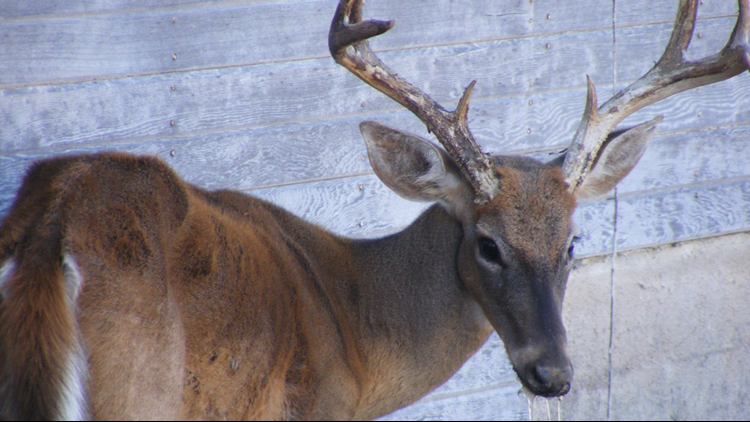DUVAL COUNTY, Texas — A fatal neurological illness has been discovered in Duval County at a deer breeding facility, according to a press release from the Texas Parks & Wildlife Department.
In the release, officials said tissue samples were submitted by the facility as part of a required Chronic Wasting Disease surveillance program.
CWD was found while testing those samples at the Texas A&M Veterinary Medical Diagnostic Laboratory on August 18. The National Veterinary Services Laboratory in Ames, Iowa, confirmed the discovery of the disease in those tissue samples on August 25, TPWD officials said.
It's important to note that there is no evidence that CWD poses a risk to humans or non-cervids, the TPWD said.
The findings have put movement restrictions and releases on hold for other breeding facilities that may have received or shipped deer to Duval County within the last five years, the TPWD said.
According to officials, an investigation is underway as the TPWD and the Texas Animal Health Commission work to determine the extent of the disease within the facility and evaluate risks to Texas’ free ranging deer populations.
“Early detection and containment remain critical strategies in our efforts to help mitigate the risk of further spread of this disease,” said Carter Smith, TPWD Executive Director. “There is too much at stake across Texas to do otherwise.”
More about CWD from TPWD:
CWD was first recognized in 1967 in captive mule deer in Colorado. CWD has also been documented in captive and/or free-ranging deer in 26 states and 3 Canadian provinces.
In Texas, the disease was first discovered in 2012 in free-ranging mule deer along a remote area of the Hueco Mountains near the Texas-New Mexico border and has since been detected in 260 captive or free-ranging cervids, including white-tailed deer, mule deer, red deer and elk in 14 Texas counties. For more information on previous detections visit the CWD page on the TPWD website.
CWD is a fatal neurological disease found in certain cervids, including deer, elk, moose and other members of the deer family. CWD is a slow and progressive disease. Due to a long incubation, cervids infected with CWD may not produce any visible signs for a number of years after becoming infected. As the disease progresses, animals with CWD show changes in behavior and appearance. Clinical signs may include, progressive weight loss, stumbling or tremors with a lack of coordination, excessive thirst, salivation or urination, loss of appetite, teeth grinding, abnormal head posture, and/or drooping ears.
However, as a precaution, the U.S. Centers for Disease Control and the World Health Organization recommend not to consume meat from infected animals.



